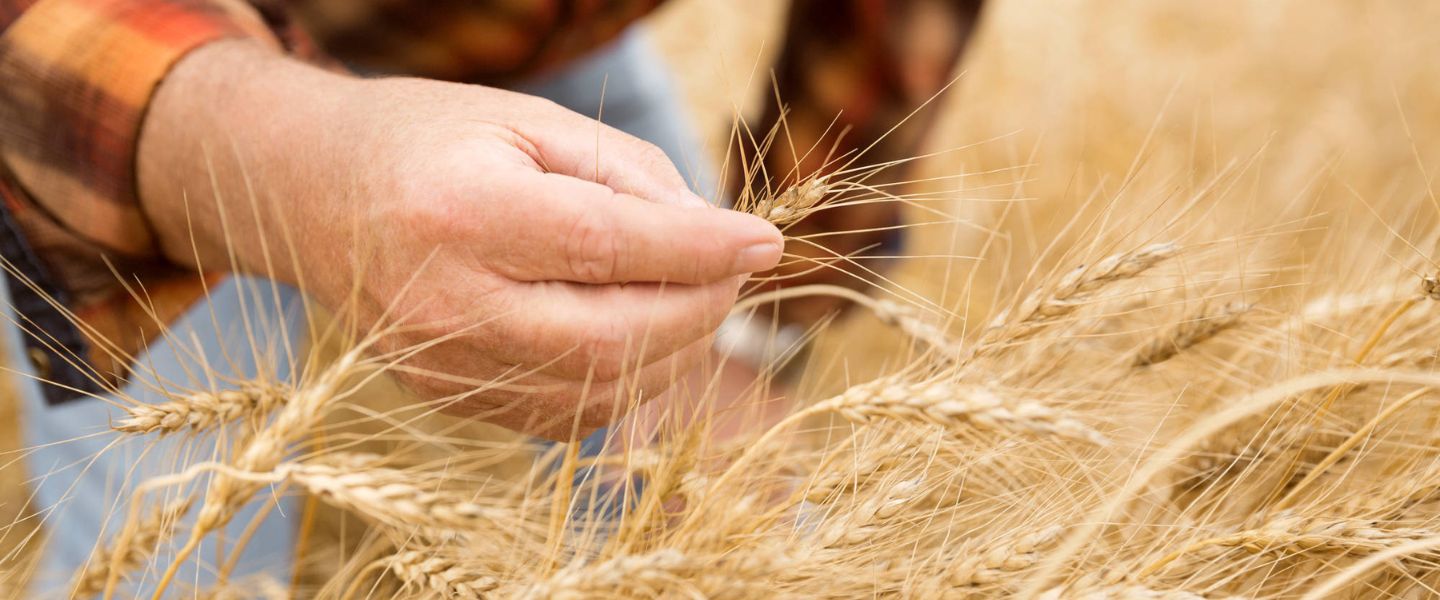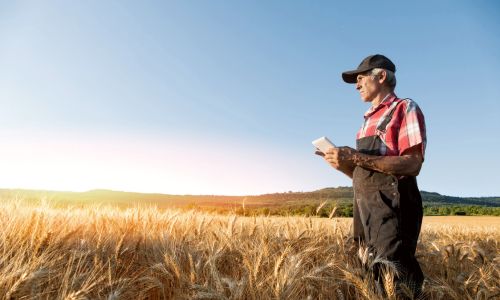-
Compliance
Assistance in the design, implementation and monitoring of Compliance programs within the framework of local and international regulations (FCPA, Corporate Criminal Responsibility Law), including course delivery.
-
ESG & Sustainability
Projects related to ESG (environmental, social and governance) and Sustainability.
-
Forensic
The services offer includes expert advice in litigation resolution and the development of procedures in legal/digital forensics and cybersecurity.
-
Human Capital
Grant Thornton's Human Capital division has a team of professionals determined to accompany individuals and organizations throughout the relationship between the employee and the organization.
-
Organizational restructuring
Advice on operational restructuring to companies in difficulty, their creditors or other interested parties.
-
Services to the Government and the Public Sector
Financial audit projects and special technical and concurrent reviews of programs of national and subnational governments financed by International Credit Organizations. Special projects for government entities, public and mixed companies.
-
Valuation Services
We provide stock, business, asset, and liability valuations in support of negotiations, account structuring, and tax opportunities.
-
Transaction Advisory Services
The service offer includes financial due Diligence, operations services, business and strategic intelligence, ratings, advice on mergers and acquisitions, capital markets and debt advice.
-
Academy - Empowered by Grant Thornton Argentina & Perú
Academy is an e-learning platform that emerged as a joint initiative of Grant Thornton Argentina and Grant Thornton Perú. It is designed so that everyone can acquire new skills in accounting, auditing, taxes, technology and business through access to multiple courses and certifications.
-
External audit
We offer services of external audit of financial statements; assurance reports, agreed procedures and certifications; due-diligence and take-over of companies.
-
Audit methodology and technology
At Grant Thornton we use a single audit methodology across our global network. We apply it through an integrated set of software tools known as the Voyager suite. Meet it now.
-
Professional standards and training
Our IFRS advisors can help you navigate the complexity of the standards so you can spend your time and effort on your business.
-
Prevention of money laundering and financing of terrorism
At Grant Thornton we provide advice to our clients in the development of an Asset Laundering and Terrorist Financing Prevention strategy that allows them to prevent risks in a comprehensive manner.

-
Tax outsourcing
Taxes have a strong impact on your business decisions. At Grant Thornton we will respond quickly and tailor solutions for our clients.
-
Payroll
Put your payroll in good hands while you take your business beyond. Learn about our services.
-
Accounting, administration and finance services
To achieve the highest business benefits, you need an experienced team by your side. Learn about our services.
-
Start-up companies
Learn about our solutions to help build your business.
-
External audit
We offer services of external audit of financial statements; assurance reports, agreed procedures and certifications; due-diligence and take-over of companies.
-
AML - FIU Independent External Reviewer
We participate in the implementation of the requirements of the FIU in leading companies and our services ensure an orderly framework, optimizing the investment.
-
Internal audit
An internal audit helps identify gaps, deficiencies, and potential for inherent risk in all facets of the organization.
-
Legal audit
The monitoring of the legal area is usually a complex and difficult task for organizations, which however cannot be neglected.
-
Creation and acquisition of Financial Entities
We have the knowledge and experience in activities related to the acquisition and creation of financial entities, both locally and internationally.
-
Responsible for regulatory compliance
At Grant Thornton we offer the service of acting as "Responsible for Regulatory Compliance and Internal Control" for companies that requested registration as Settlement and Clearing Agent and Trading Agent.
-
Global Mobility Services
Sending someone abroad involves liabilities and obligations. We offer interesting solutions to minimize the tax burden for both parties.
-
Direct Tax
We provide clear and practical solutions that meet your specific business needs, in the most tax-efficient way possible.
-
Indirect Tax
Grant Thornton's tax teams take a rigorous approach to help you meeting your tax obligations, whatever challenges you may face along the way.
-
International taxes – Transaction support
We offer our international experience in the field and make available the resources to plan and adequately comply with regulatory frameworks.
-
Services to private clients
Wherever you are in the world, our tax specialists can help you with your interests and investments abroad.
-
Clean energy and technology
Growing demand, development of new ways of energy and need of a sustainable future: we accompany our client in these changes and to be one step ahead.
-
Mining
Our flexible, partner-led teams are dynamic and focused on development. We take time to understand the details of the client’s business and offer unique solutions.
-
Oil and gas
Our Oil & Gas teams have the deep knowledge, wide experience and vision needed to offer our clients practical solutions adapted to their businesses.
-
Banking
Grant Thornton offers meaningful and accurate solutions for operational and transactional issues, litigation and administrative disputes in banking.
-
Private capital
We gather international teams of experts in corporate finance, restructuring and recovery, tax and insurance services to deliver customized solutions from initial investment, through development stages until the end of each project.
-
Fintech
We work to take advantage of all opportunities and manage industry risks, allowing our clients to always be one step beyond their competitors.
-
Asset management
We have specialized teams in more than 140 markets delivering solutions regarding insurance, taxes and advisory to global, international, regional, local asset managers.
-
Insurance
Thanks to our specialized team we offer accurate solutions for operational and transactional matters, litigations and administrative conflicts.

The agricultural productions of different Argentine provinces are being affected by drought, late frosts, fires or plagues. For this reason, the provincial governments together with the National State, through different decrees, have applied Law 26.509 on Agricultural Emergency.
Julia Adano, leading tax partner and Agribusiness benchmark at Grant Thornton Argentina, comments that producers who see their sources of income generation compromised, located in districts declared in a state of emergency and/or disaster, in accordance with the aforementioned Law may receive financial assistance and access certain benefits to alleviate the tax burden. Some of them are:
-
Extension of the expiration or exemption of the payment of taxes whose expiration operates during the emergency. The extensions for the payment of taxes will have an expiration term until the next productive cycle to the one in which said period ends. They will not be subject to update of the nominal values of the debt;
-
Suspension of up to ninety (90) days and/or productive cycle after the end of the period of agricultural emergency or disaster zone of the initiation of lawsuits and administrative procedures for collection of debts due prior to the emergency or agricultural disaster. Trials already started must be paralyzed for the same period. The course of the procedural terms of the expiration of instance and prescription will also be suspended;
- Suspension of advance payment of Income Tax for all producers with difficulties or covered by the emergency and will be carried out by AFIP with special focus on those producers with more than $50 million declared profit in 2022;
-
If forced sales of animals was made in accordance with the parameters stipulated by the norm, 100% of the benefits derived from them may be deducted from the tax balance of the income tax;
-
The liabilities will be financed under the same conditions in which the credits were granted with a deferral of 360 days. Likewise, Banco Nación would make available a line of credit for producers with a reduction in the interest rate, which would be subsidized by 15 points.
In addition, the Central Bank is considering canceling the measures that increased the rate for those producers who could access credit and had been limited by the issue of the liquidation of the soybean dollar.
In order to determine under which regime the producers will benefit, the percentage affected by the production or production capacity is taken into account. When this is between 50 and 79 points, the categorization as an emergency zone corresponds; while, if it is higher than 80%, it will be considered a disaster area.
Which are the departments reached and until when
The different provinces have indicated which are the departments and localities affected by the state of emergency and/or disaster and have determined the end date of the productive cycle according to the level of affectation of the productions.
Until October 1° 2023 for fruit and vegetable farms affected by late frosts, in the departments of Ambato, Belén, Santa María and Tinogasta and in the towns of El Suncho and Villa Norte (Los Ángeles) of the Capayán department; Colonia Achalco, El Alto; and La Merced, Paclin.
Until March 1°, 2023, for farms affected by the Tucura plague in the departments of Cushamen, Tehuelches, Languiñeo, Gastre and Telsen.
Until November 30, 2023, for livestock, agriculture, forestry, fruit and vegetable and beekeeping operations affected by fires in the areas that have been delimited 24 georeferenced polygons in 11 departments: Punilla, San Alberto, Calamuchita, San Javier, Colón, Tulumba , Ischilín, Minas, Río Cuarto, Río Seco and Pocho.
Until October 31, 2024 for citrus, tropical fruit, bovine, swine and beekeeping farms affected by drought, in the departments of Santa Bárbara and Ledesma. For their part, the vegetable, corn, bean and soybean farms, affected by drought, in the departments of Santa Bárbara, Ledesma and San Pedro, will end their production cycle on October 31, 2023.
Until February 27, 2023 for livestock farms affected by drought in the Chical Có, Puelén, Chalileo and Limay Mahuida departments. In turn, the productive cycle of cattle farms affected by drought will end on March 31, 2023, in the departments of Chalileo, Conhelo, Limay Mahuida, Loventué, Rancul, Realicó, Trenel and Toay.
Until March 31, 2024, to farms affected by frost in the 135 districts located in the following departments: San Carlos, Tunuyán, Tupungato, Junín, La Paz, Rivadavia, San Martín, Sata Rosa, Guaymallén, Las Heras, Lavalle, Luján de Cuyo, Maipú, General Alvear and San Rafael.
The productive cycle of fruit farms affected by frost in 2021/22, which was to end on October 7, 2022, was extended to April 7, 2023. In turn, the end of the productive cycle (2022/23) for fruit, vegetables and forage affected by frost throughout the provincial territory was determined on April 30, 2024.
Until June 2, 2023 for farms affected by intense frost and hail in the departments of General Roca, Avellaneda, Pichi Mahuida and El Cuy. For horticultural, fruit, wine and nut farms affected by late frosts and hail in the departments of Avellaneda, General Conesa, Pichi Mahuida, General Roca, El Cuy and Adolfo Alsina, May 22, 2024 was determined as the date end of the production cycle.
Until November 1, 2023, for wine farms affected by frost in the departments of Cafayate, San Carlos, Molinos and Cachi.
Until December 11, 2023, for horticultural and fruit farms affected by frost in the Departments of San Martín, Sarmiento, 25 de Mayo, 9 de Julio, Rawson, Pocito, Albardón, Angaco, Jáchal, Caucete, Chimbas, Calingasta, Santa Lucia, Church, Ullum and Zonda.
Until November 8, 2023, for fruit and vegetable farms affected by late frosts in the town of Los Antiguos, in the Lago Buenos Aires department.
Until May 31, 2023 for agricultural, livestock and fruit and vegetable farms affected by drought throughout the provincial territory.
Until November 1, 2023, for fruit and vegetable farms and family farming affected by frost in the department of Tafí del Valle.
Provinces not yet declared by Nation
Although as of January 31, 2023, the National Government, through the Ministry of Agriculture, Livestock, Fisheries and Food, did not yet declare a state of emergency and/or agricultural disaster in some provinces, some Provincial Governments did.
The Provincial Ministries of Production must negotiate with the National Executive Power the necessary instruments for the declaration of emergency and/or disaster, in order to fully benefit from the scope of the Agricultural Emergency and Disaster Mitigation System stipulated in Law N°26.509.
However, the Minister of Economy, Sergio Massa, announced that the measures regarding earnings, suspension of lawsuits and embargoes, financing of liabilities and credits, and participation in the revolving assistance fund will also be added to those adopted by the provinces.
Extended until March 31, 2023 the state of emergency and/or agricultural disaster for all production affected by drought in the Buenos Aires districts of Arrecifes, Baradero, Capitán Sarmiento, Carmen de Areco, Chacabuco, Colón, Exaltación de la Cruz, General Arenales, Junín, Ramallo, Rojas, Salto, San Andrés de Giles, San Antonio de Areco, San Nicolás, San Pedro, Ayacucho, Brandsen, Chascomús, Dolores, General Guido, General Madariaga, General Las Heras, General Paz, La Plata, Laprida, Luján, Magdalena, Maipú, Pila, Punta Indio, Rauch, San Vicente, Tordillo, Alberti, Bragado, Chivilcoy, Lobos, Mercedes, Monte, Roque Pérez, Navarro, Suipacha, 9 de Julio, General Viamonte, Lincoln, Leandro N. Alem, Guaminí, General La Madrid, Balcarce, circumscriptions II, III, IV, X, XI y XII of the party of Tandil, General Rodríguez and Pergamino.
In addition, it declared the followin parties in a state of emergency and/or agricultural disaster due to drought: Castelli for the period between 7/1/2022 and 3/31/2023; Marcos Paz, from 7/1/2022 to 3/31/2023; Cañuelas, from 12/1/2022 to 3/31/2023; General Belgrano, between 9/1/2022 and 3/31/2023; Lezama, from 10/1/2022 to 3/31/2023; Campana, from 12/1/2022 to 3/31/2023; 25 de Mayo, from 7/1/2022 to 3/31/2023; Las Flores, between 12/1/2022 and 3/31/2023; and in Circumscriptions II, III, IV, V, VII, VIII and XII of the Saavedra party, for the period from 7/1/2022 to 3/31/2023.
Producers in a state of emergency will have an extension of the payment of the rural real estate tax and those in disaster will be exempt from payment in proportion to the percentage affected. Also, the Government of Buenos Aires made financing lines available mainly for small and medium producers, to mitigate the impact of the drought.
Through Provincial Decree N° 76/2023, an Agricultural Emergency is declared for livestock and agricultural activities throughout the province, starting on January 13, 2023 and for 180 days.
This also establishes the suspension until April 30, 2023 of the payment of taxes for the transfer of cattle outside the Province nor the payment on account of the SI 2505 form and clarifies that the payment on account for the freight service that includes interjurisdictional or intrajurisdictional transportation.
Extended the state of emergency that ended on December 31, 2022 for a term of 6 (six) months from January 1, 2023, and until July 1, 2023 throughout the provincial territory. Thus, the rural real estate tax is deferred until July 30, 2023 of all installments of fiscal year 2022 and the total annual payment and installments 1 and 2 of fiscal year 2023. This applies to all productive activities affected by the drought.
Through Decree N°. 4727, a state of emergency and/or disaster was established until June 30, 2023 for the agricultural exploitation of corn, citrus, horticulture, and beekeeping throughout the province. And until November 30, 2023 for cattle, goat, sheep and horse farms and for dairy production.
It instructs "the deferral of the maturities of the 4th advance of the Rural and Sub-Rural Real Estate Tax 2022, the 1st and 2nd advances of the Rural and Sub-Rural Real Estate Tax 2023, and the obligations derived from the Special Payment Facilities Plan provided by article 10 of Decree N°. 46/2022 MP, as of January 15, 2024”, for producers declared in a state of emergency.
For its part, article 10 establishes the exemption from paying the 4th advance payment of the 2022 Rural and Sub-Rural Real Estate Tax and the 1st and 2nd advance payments of the 2023 Rural and Sub-Rural Real Estate Tax for those taxpayers who are in Agricultural Disaster situation.
In addition, the province has launched a "Special optional payment facilities plan" for the cancellation of tax advances for producers in emergency, which contemplates 3 consecutive monthly installments and without financing interest, whose first due date will be March 15, 2024.
Our Agribusiness team, together with the Tax team, are prepared to accompany you in the difficult moment that the industry is going through and advise you to invoke the state of emergency and/or disaster. If you want to know more, contact us.
